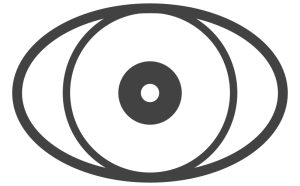
Cities are not merely the settings of social life; they are active, living infrastructures—assemblages of gestures, materials, and relations that shape how we live, move, and imagine together. Within European Ethnology, urban ethnography approaches the city not as a background to human activity but as an epistemic field: a place where cultural forms, political orders, and sensory ecologies become entangled and perceptible through everyday practice.
This cluster explores how ethnography can engage the city simultaneously as a site of inquiry and a collaborator in thought. It invites students to move between theory and fieldwork through practices of attention—walking, mapping, writing, and curating the infraordinary. These gestures are treated not only as methodological tools but as ethical and epistemological acts of noticing, caring, and composing with the urban. Bridging classical perspectives on urban modernity with contemporary feminist, multispecies, and infrastructural approaches, the courses cultivate sensitivity to the entanglements and transformations that define collective life.
Pedagogically, the cluster operates through a shared operative rhythm: the alternation between conceptual seminars and field practicums. Each week, students encounter key thinkers in urban ethnography—Simmel, Lefebvre, Certeau, Haraway, Amin, Thrift, Puig de la Bellacasa, Simone—and translate theoretical insights into situated experiments. Through writing, mapping, and multimodal documentation, they learn to engage the city as a dynamic ecology of relations and to reflect critically on how ethnographic methods produce knowledge.
The cluster comprises two interlinked courses that form a clear progression across program levels:
- Cities and Everyday Life: An Introduction to Urban Ethnography (BA) introduces ethnography as a mode of attention. It focuses on sensory observation, descriptive writing, and creative documentation, guiding students to notice how infrastructures and atmospheres shape everyday life. The course culminates in The Cabinet of Urban Fragments, a collective exhibition that gathers student field materials—texts, sketches, maps—into a shared portrait of the infraordinary.
- Urban Ethnography and the City as Field (MA) expands this foundation into a space of theoretical reflection and methodological invention. Students approach the city as a methodological partner and develop small-scale independent projects that combine ethnographic observation with curatorial and analytical experimentation. The course culminates in The Cabinet of Urban Specimens, a multimodal, reflexive exhibition in which fragments serve as analytical devices.
Together, these courses trace a movement from learning to observe to learning to theorize and curate urban life. They articulate a coherent path through which students advance from empirical attention to conceptual experimentation—mirroring the broader trajectory of European Ethnology as a field grounded in empirical philosophy, multimodal practice, and curatorial care.
Both courses share a commitment to understanding how everyday infrastructures sustain, challenge, and reimagine coexistence. They invite students to approach the city not only as an object of study but as a partner in ethnographic thought—a field of relations that remains perpetually in the making.

Cities and Everyday Life (BA)
It explores how everyday practices, infrastructures, and atmospheres shape urban life. By combining reading, observation, and creative documentation, students learn to approach the city as both a field and a collaborator. Through walks, sensory mapping, and multimodal exercises, the course introduces key ideas from urban anthropology and Science and Technology Studies while cultivating ethnographic attention, reflexivity, and care for the more-than-human relations that compose contemporary urban worlds. Access.

Urban Ethnography and the City as Field (MA)
This course explores the city as a living field of relations, infrastructures, and atmospheres. Blending European Ethnology, feminist STS, and multispecies anthropology, it trains students to observe, map, and compose urban life through fragments, gestures, and sensory traces. Combining theoretical readings with field exercises, participants experiment with writing, drawing, and cartography to develop new ethnographic forms of attention, care, and description in contemporary urban environments.
Course Relationship and Progression
Cities and Everyday Life: An Introduction to Urban Ethnography and Urban Ethnography and the City as Field are designed as complementary yet distinct stages in the study of urban life within European Ethnology.
The undergraduate course introduces students to the ethnographic imagination of the city. It emphasizes observation, sensory engagement, and creative documentation as ways of learning to notice the everyday. Through guided exercises and accessible readings, students experiment with describing how people, materials, and infrastructures compose urban worlds. The emphasis lies on discovering ethnography as a mode of attention.
The master’s course deepens this foundation by approaching the city as an evolving ethnographic field. It combines theoretical debates in European Ethnology, feminist STS, and multispecies urbanism with independent fieldwork and critical analysis. Students develop their own projects, engage reflexively with ethics and epistemology, and experiment with multimodal formats. The emphasis lies on developing ethnography as a method of inquiry and curatorial reflection.
Together, these courses form a pedagogical trajectory: from learning to observe and describe the textures of urban life to learning to theorize and curate the city as a living archive.
